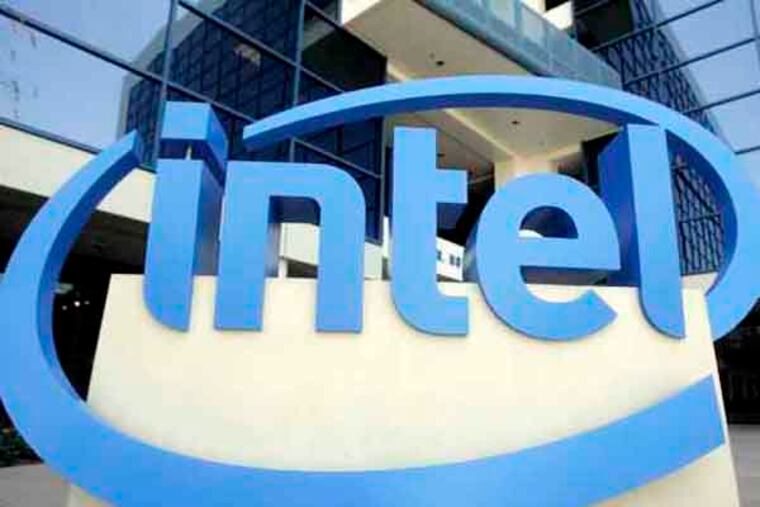Intel to offer Internet TV, challenging traditional providers
Intel Corp., the computer-chip giant, will enter a crowded field of companies offering alternatives to Comcast Corp. and traditional pay-TV services.

Intel Corp., the computer-chip giant, will enter a crowded field of companies offering alternatives to Comcast Corp. and traditional pay-TV services.
This year, the Santa Clara, Calif., company plans to sell a set-top box that streams content from the Internet onto a TV.
Intel's self-install set-top box will come with a bundle of live local TV, ad-supported cable channels, and premium cable. There will be no need for professional installers, an Intel spokesman said.
The company will market the box and service under a new brand yet to be disclosed. It will be Intel's first direct-to-consumer product in many years.
The box will stream content from either a wire that brings high-speed Internet into a home or WiFi.
"We are broadly engaged with the content providers and we will have a strong offering," Intel spokesman Jon Carvill said Wednesday.
"We think the television experience is not one that has evolved very much over the last several decades and the industry is ripe for this," he said. He added that Intel believes that local TV stations are very important in the content package.
Intel is part of broad experimentation and innovation among companies seeking to grab a share of the $150 billion-a-year pay-TV industry with Internet-based alternatives. The others include Netflix, Hulu, Amazon Prime, Apple TV, and Aereo.
Netflix, the largest Internet subscription service, has 23.4 million subscribers in the United States and 3.1 million overseas subscribers.
Apple says consumers are purchasing 800,000 TV episodes and 350,000 movie viewings a day from its iTunes store. To date, Apple says, they have downloaded one billion TV episodes and 380 million movies.
Aereo, a small New York company being sued by TV networks that say it is stealing their signals, streams local stations over the Internet for $8 a month.
Pay-TV companies, meanwhile, are competing with TV Everywhere, which allows cable-TV subscribers to watch TV on tablets, smartphones, and laptop computers, and by upgrading their services.
Comcast has launched a cloud-based TV channel guide and service called X1 and is planning a second generation, X2.
Programmers such as Walt Disney Co.-owned ESPN and Fox have spent tens of billions of dollars on the TV rights for live sports, which typically can be watched only on Comcast and pay-TV services.
Internet-based video, some say, may not be devastating to the economics of cable-TV companies because of the potential for "usage-based billing."
As people watch more entertainment streamed over the Internet, cable-TV companies and other Internet providers may charge for that video traffic. So while the companies lose TV subscribers and associated revenue, they could boost revenue with usage-based Internet billing - the more bandwidth a subscriber uses, the higher the bill.
"Whatever it is that Intel would have to charge for their service, if cable operators charged an additional $40 in order to use it, the service would almost certainly fail," Craig Moffett, one of the nation's leading telecommunications analysts, wrote in a research note this week.
Comcast, the nation's largest residential Internet provider, has eliminated its cap on Internet usage and is test-marketing usage-based Internet packages in Tucson, Ariz., and Nashville, a company spokeswoman said Thursday.
Intel is test-marketing the set-top box with company employees in three states with significant Intel operations. Published reports have said 2,000 Intel employees are test-marketing the product.